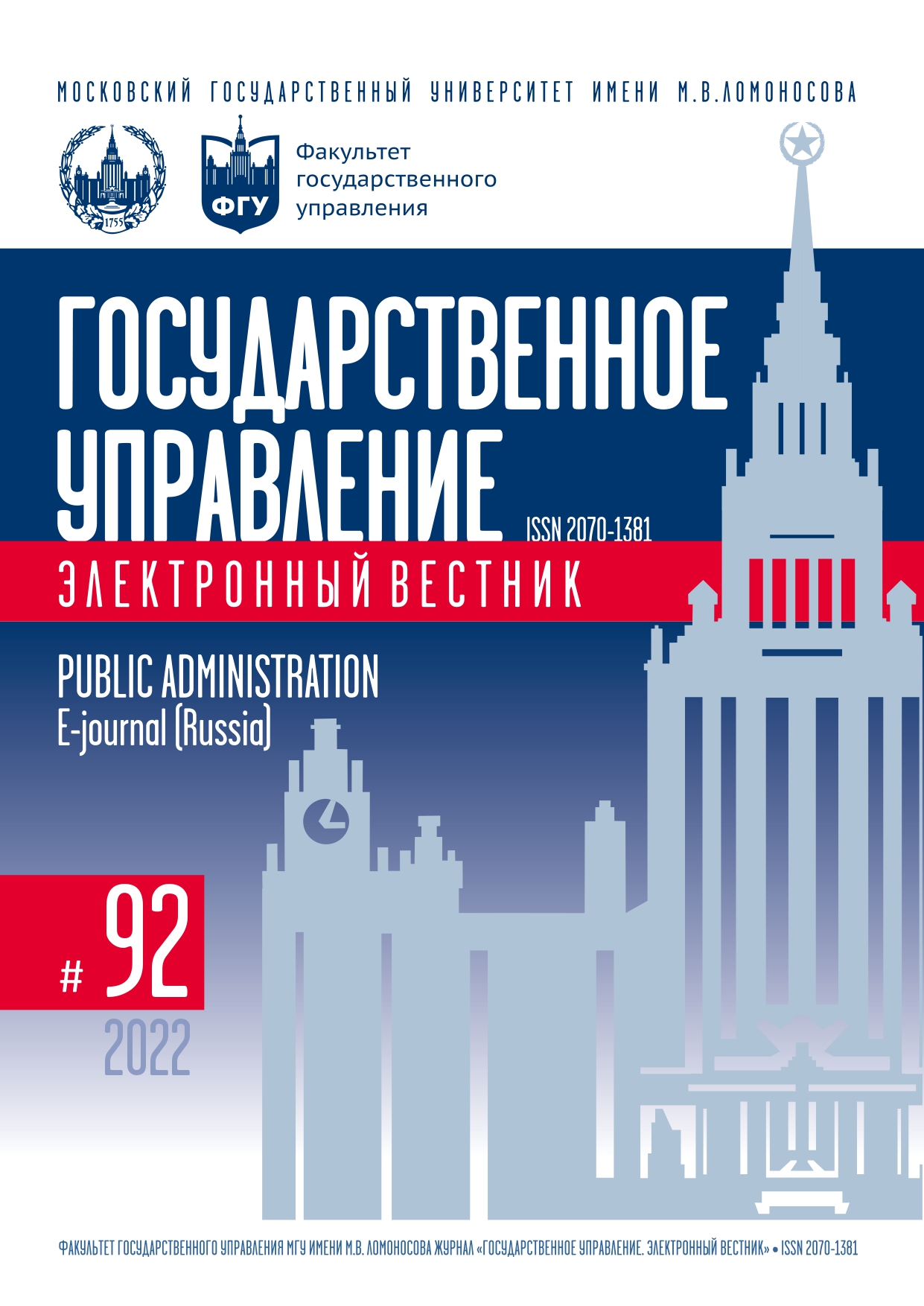Digital Labour Control — Challenge of Modern Time
Keywords:
Digital control, trust, digital transformation, Industry 4.0, management, labour, COVID-19Abstract
The paper examines the current problems of management control digitization, considering the increased popularity of remote and hybrid forms of work in the conditions of the COVID-19 pandemic. Under the pressure of external circumstances, the process of digital transformation has become accelerated, and many managers have not been able to properly prepare their teams for the introduction of digital control (specialized software, cameras, and other similar equipment). The consequence of this was the growth of corporate conflicts, various violations of legislation and informal norms in terms of employees’ security and privacy. The article contrasts the ideal image of the organizations of the Industry 4.0 generation with the corporate reality of negligent handling of data, managerial failures, lack of mutual understanding and solidarity of workers in the face of the pandemic vital threat. The computerization of industry in Industry 4.0, among other things, requires collecting and processing data on the performance of labour functions. The more information a single virtual model of an organization processes, the more accurate it is, and the higher predictive capabilities necessary for effective management are. In the context of digital transformation, the transfer of control and evaluation of labour efficiency to an electronic format is an integral stage of development. But this managerial function is conflictual, and many managers could not avoid its “digitization” without a drop in employee loyalty. The problem of advancing social development technologies was actualized, for the analysis of which the theoretical and methodological base of STS was used in the work. The introduction of digital control in organizations is a challenge to the professionalism of managers — it requires high trust and mutual understanding in the team, the willingness of the team to change the usual practices, adopting the rules of connectivity, visibility, and permeability of Industry 4.0. Laws on the protection of personal data should become a guide in this difficult transition, but the leading role is played by mutual understanding between employees and a willingness to make a choice in favor of more open communications, making productivity data a means of increasing it, rather than managerial manipulation. The article discusses the advantages of technological means of labour monitoring, common mistakes in their implementation and guidelines for the successful application of such technologies.
References
Алтухова Н.Ф. Условия реализации цифровой трансформации в организации // Экономика. Налоги. Право. 2018. Т. 11. № 2. С. 70–74. DOI: 10.26794/1999-849X-2018-11-2-70-74
Грошев И.В., Мэнин Х. Управление изменениями организационной культуры в условиях цифровой трансформации // Вестник экономической безопасности. 2020. № 5. С. 206–211. DOI: 10.24411/2414-3995-2020-10323
Дудина В.И. От паноптикона к панспектрону: цифровые данные и трансформация режимов наблюдения // Социологические исследования. 2018. № 11 (415). С. 17–26. DOI: 10.31857/S013216250002782-3
Желнин А.И. От «первой в истории контролируемой пандемии» к рациональному биополитическому управлению // Дискурс-Пи. 2021. Т. 18. № 1 (42). С. 130–141. DOI: 10.24412/1817-9568-2021-1-130-141
Земнухова Л.В., Глазков К.П., Логунова О.С., Максимова А.С., Руденко Н.И., Сивков Д.Ю. Приключения технологий: барьеры цифровизации в России. М. — СПб.: ФНИСЦ РАН, 2020. DOI: 10.31119/978-5-89697-339-3
Зубофф Ш. Эпоха надзорного капитализма. битва за человеческое будущее на новых рубежах власти. М.: Издательство Института Гайдара, 2022.
Каз Е.М. Доверие в организации и результативность деятельности: от модели к инструментам // Вестник Томского государственного университета. Экономика. 2021. № 53. С. 111–122. DOI: 10.17223/19988648/53/9
Нурмухаметов Р.К., Торин С.С. Цифровое доверие (digital trust): сущность и меры по его повышению // Известия Тульского государственного университета. Экономические и юридические науки. 2020. № 1. С. 32–39.
Тартаковская И.Н. Доверие перед лицом пандемии: в поисках точки опоры // Социологический журнал. 2021. Т. 27. № 2. С. 68–89. DOI: 10.19181/socjour.2021.27.2.8087
Юдина М.А. Индустрия 4.0: конкуренция за актуальность // Государственное управление. Электронный вестник. 2020. № 80. С. 282–299. DOI: 10.24411/2070-1381-2020-10074
Яхонтова Е.С. Доверие в управлении персоналом. Зарубежные подходы и отечественный опыт оценки // Социологические исследования. 2004. № 9 (245). С. 117–122.
Edwards P.N. Infrastructure and Modernity: Force, Time, and Social Organization in the History of Sociotechnical Systems // Modernity and Technology / ed. by Th.J. Misa, Ph. Brey, A. Feenberg. Cambridge, MA: MIT Press, 2003. P. 185−226.
Hardt M., Negri A. Commonwealth. Cambridge: Harvard University Press, 2009.
Pinch T.J., Bijker W.E. The Social Construction of Facts and Artefacts: or How the Sociology of Science and the Sociology of Technology Might Benefit Each Other // Social Studies of Science. 1984. Vol. 14. Is. 3. P. 399–441. DOI: 10.1177/030631284014003004
Raveendhran R., Fast N.J. Humans Judge, Algorithms Nudge: The Psychology of Behavior Tracking Acceptance // Organizational Behavior and Human Decision Processes. 2021. № 164. P. 11–26. DOI: 10.1016/j.obhdp.2021.01.001
The Social Construction of Technological Systems: New Directions in the Sociology and History of Technology / ed. by W.E. Bijker, Th. Parke Hughes, T. Pinch. Cambridge, MA: MIT Press, 1987.
Vulnerability in Technological Cultures: New Directions in Research and Governance / ed. by A. Hommels, J. Mesman, W.E. Bijker. Cambridge, Massachusetts: MIT Press. 2014.
Wichmann R.L., Eisenbart B., Gericke K. The Direction of Industry: A Literature Review on Industry 4.0 // DS 94: Proceedings of the Design Society: 22nd International Conference on Engineering Design (ICED19). Delft: Delft University of Technology, 2019. P. 2129–2138. DOI: 10.1017/dsi.2019.219

